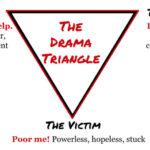
PART I: Identity Over Truth There is a fundamental dividing line in the human experience, a crossroads where the trajectory of the soul is decided. It is captured in the realization that anybody who chooses their identity over the truth is a psychological child inside. This choice reveals a profound lack of will—specifically, the will to own one’s feelings enough to reflect on their own potentially contradictory nature. Instead of […] Read more »













